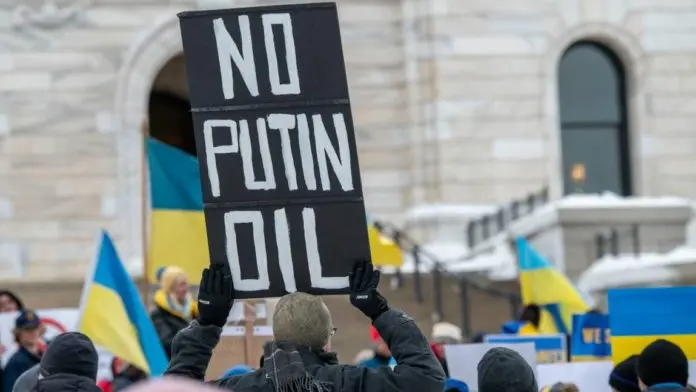- P.O. Box: 11482 Yaoundé, Cameroon; Headquarters: Efoulan, Yaoundé 3
- contact@caessinternational.org

To demonstrate its unity against Russia, the European Union aims to show its determination to no longer finance Russia’s war against Ukraine by opting for an embargo on Russian energy. However, countries such as Hungary, Slovakia, and the Czech Republic do not seem ready to endorse this decision in the short or medium term. They argue that due to their landlocked geography, they lack rapid alternatives. These EU states are demanding guarantees for their energy supplies and more time to adapt their energy needs to the new market constraints.
This apparent union and solidarity among Europeans is reinforced by the give-and-take among member states and the search for meaningful compromises. Beyond oil, EU members are expanding sanctions against Russian oligarchs, individuals, and banks, excluding the latter from the secure interbank SWIFT system. Additional sanctions target alleged war criminals and continue the ban on Russian state television channels.
In this context, the oil embargo is partial, applying only to sea shipments, while favoring supply via the 4,000 km-long Russian Druzhba pipeline to countries such as Hungary, Slovakia, and the Czech Republic. Thus, by December 2022, Europeans planned to reduce their collective imports of Russian oil by 90%, while hoping for the lifting of exceptions as soon as possible and enforcing the ban on the re-export of purchased Russian oil.
Furthermore, the European Commission intends to assist its member states aiming to end their dependence on Russian energy by advocating for the inclusion of this goal in the €750 billion European recovery plan.

Figure 1: European countries benefiting from the privilege of Russian oil supply. Source: CAESS 2022

Figure 2: Radical countries supporting a European embargo on Russian gas. Source: CAESS 2022